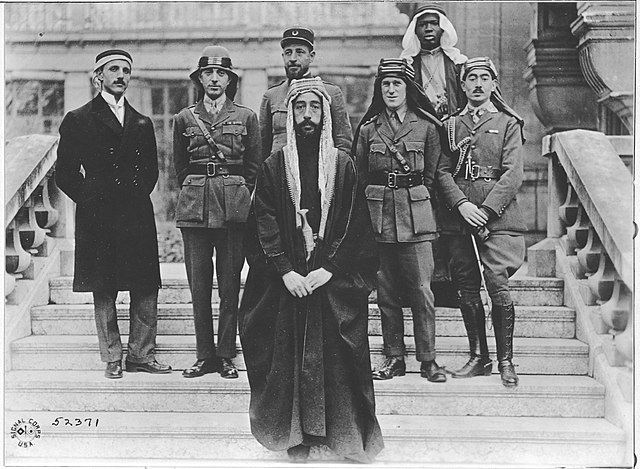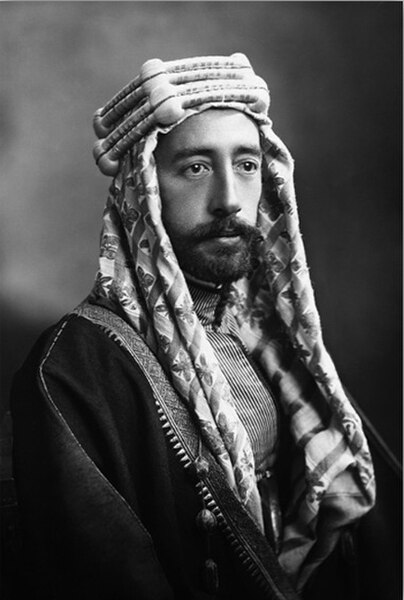The Arab Kingdom of Syria was a self-proclaimed, unrecognized constitutional monarchy existing briefly in the territory of historical Syria. It was announced on 5 October 1918 as a fully independent Arab constitutional government with the permission of the British military. It gained de facto independence as an Emirate after the withdrawal of the British forces from OETA East on 26 November 1919, and was proclaimed as a Kingdom on 8 March 1920.
Faisal with T. E. Lawrence and the Hejazi delegation at the 1919 Paris Peace Conference
Proclamation of Faisal I as King of Syria in 1920.
Emir Faisal
25 Syrian piastre banknote issued in Beirut by the Bank of Syria in 1919. The Bank of Syria was later renamed the Bank of Syria and Greater Lebanon and continued issuing currency for both Syria and Lebanon until the 1950s.
Occupied Enemy Territory Administration
The Occupied Enemy Territory Administration (OETA) was a joint British, French and Arab military administration over Levantine provinces of the former Ottoman Empire between 1917 and 1920, set up on 23 October 1917 following the Sinai and Palestine Campaign and Arab Revolt of World War I. Although it was declared by the British military, who were in control of the region, it was followed on 30 September 1918 by the 1918 Anglo-French Modus Vivendi in which it was agreed that the British would give the French control in certain areas, and the Hashemites were given joint control of the Eastern area per T.E. Lawrence's November 1918 "Sharifian plan".
Results of the King–Crane Commission Petitions received from OETA South (became Palestine), OETA West (became Lebanon and Western Syria) and OETA East (became Syria and Transjordan); it has been described as "the first-ever survey of Arab public opinion".
This draft British Telegram of September 1919, ordering the withdrawal of British troops from the French and Arab areas of the OETA, was prepared shortly after the Franco-British conference at Deauville. The line in point 5 became known as the "Deauville Line"
Image: Major General Sir Louis Jean Bols, KCB, DSO







